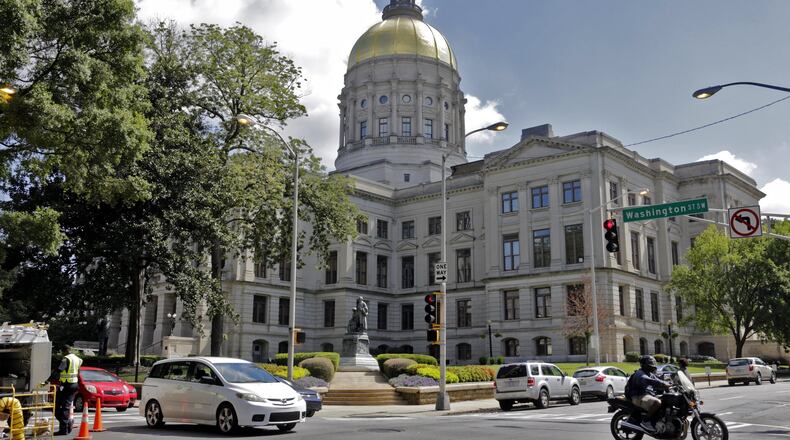The rise in state tax collections has continued almost unabated since shortly after the start of the COVID-19 pandemic, through talk of recession and inflation. But they were down — slightly — in November.
The state reported Friday that overall collections were down $2.4 million — or 0.1% — compared with November 2021.
The minor decline is largely due to Gov. Brian Kemp’s decision to continue suspending the state motor fuels tax, which cost the state — and saved drivers — about $172.5 million in November.
The state suspended the gas tax in the spring to help Georgians deal with rising fuel prices. Huge growth in income and sales tax collections had made up for the loss of fuel taxes in previous months.
Income and sales tax collections — the state’s biggest sources of revenue — were up again in November over November 2021, but not as much as in some previous months. Nonetheless, had the state collected the same amount of gas tax money as it did in November 2021, overall revenue collections would have been up 7.4%.
For the first five months of the fiscal year, collections are still up 6.2%, or $741.7 million, over the same period last year.
Kemp announced Thursday that he was suspending collections of the state sales tax on motor fuel for another month, this time through Jan. 10. After that, he said, the 29.1 cents-a-gallon tax will return for Georgia drivers.
The taxes the state collects help it educate 2 million children, provide health care to more than 2 million Georgians, manage and improve parks, investigate crimes and incarcerate criminals, and regulate insurance firms, utilities and dozens of professions. The state issues driver’s licenses and helps pay for nursing home care for the elderly.
The state is a major provider of treatment for mental health and drug addiction. Besides paying salaries, it helps make sure that hundreds of thousands of former teachers, university staffers and state employees receive pensions and health care.
After all the bills were paid and agencies returned leftover funds, the state’s surplus for fiscal 2022, which ended June 30, was about $6.6 billion, The Atlanta Journal-Constitution reported in September. Kemp wants lawmakers to refund about $2 billion of that to taxpayers. More than $1 billion will go to backfill transportation funding lost since lawmakers voted to suspend the gas tax.
State income tax collections have been on the rise since shortly after the beginning of the COVID-19 pandemic, when Congress first passed massive federal aid spending. Inflation has helped boost sales tax collections, with goods costing more and the taxes on them rising, and wages have also increased as unemployment hit record lows and businesses scrambled to fill job openings.
November tax collections
The state of Georgia’s tax collections for November, compared with November 2021:
- Individual income taxes: up 4.6%
- Gross sales taxes: up 11.5%
- Motor fuels taxes: down 99.4%*
- Hotel/motel fees: up 7%
Source: Georgia Department of Revenue
* Gov. Brian Kemp has suspended gas tax collections
About the Author
Keep Reading
The Latest
Featured





